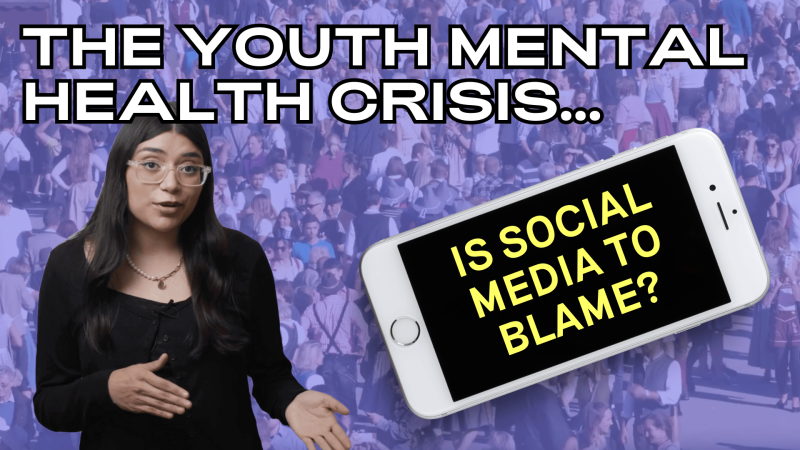New Study Challenges Misperceptions About Social Media’s Impact on Gen Z’s Mental Health Journey
Surprising data from non-profit Made of Millions reveals how social media is reshaping Gen Z’s mental health journey in unexpected ways, leading to positive self-diagnosis outcomes in the face of health care gaps
Written by Made of Millions Team

What if current assumptions about social media and mental health are wrong? What does the rise in self-diagnosis say about the state of our mental healthcare system?
Exploring these ideas is “Remapping Recovery” – a detailed new study from mental health foundation Made of Millions (MoM) and research partner Culture Co-Op, that challenges widely-held beliefs about the impact of tech and social media on Gen Z's quest for mental health answers and support. Their findings reveal a generation in need of better guidance from healthcare systems, making do with digital resources for self-diagnosis, with some surprisingly effective results.
“There’s a lot going on in the world — politically, culturally and technologically. Systems that are meant to support people are inaccessible and hard to navigate,” explains Lauren O’Shaughnessy, Co-Founder, Director of Content and Board Member at Made of Millions. “Gen Z feels lost and alone, so they’re turning to non-traditional resources. Rather than demonizing them for self-diagnosing or finding support online, we should acknowledge that in many cases, the internet is the best tool they have. ‘Remapping Recovery’ helps us better understand why that is, and start thinking about how tech and traditional healthcare can work together to reach and aid younger generations.”

Gen Z is having a mental health crisis. Is social media to blame?
For the study, Made of Millions surveyed 1,250 people in the US and Canada. This included Gen Zs in the general population, Gen Z's actively on a mental health journey, and parents of Gen Z's who are struggling with mental health. This data was supplemented with an additional 1,771 Gen Z respondents from Made of Millions’ online communities. They also interviewed 4 diverse mental health professionals who provided unique perspectives on social media, mental health misinformation, digital education, and self-diagnosis.
Among many conclusions, this data suggests:
- The majority (60%) of Gen Zs are self diagnosing, but 90% are looking to pair their self diagnosis with a professional one. In the face of an overburdened healthcare system, social media and digital sources are the best tool many of them have.
- Gen Z's DIY self diagnosis path is more effective. Gen Zs take nearly two times longer to research mental health conditions than do their parents, but are also half as likely to report receiving a misdiagnosis.
- The diagnosis gap has shrunk, from decades to years. On average, it took respondents about 2.5 years to go from symptom onset to diagnosis.
- BIPOC Gen Zs are 4x more likely to choose self-diagnosis over clinical diagnosis, and 25% more likely to get their mental health education from TV and other pop culture sources, highlighting the importance of media representation.
- Despite progress, many Gen Z’s and their parents are overwhelmed by online mental health information, causing 68% of them to quit or "drop out" of their mental health journey early on
Made of Millions’ interest in the relationship between tech and mental health stems from their first hand experiences, both as a team of sufferers who have benefited from online resources, as well as content creators who use the internet to help people in need. They understand the power of psychoeducation and the nuanced culture of social media. “A single TikTok can reach millions of young people instantly. That’s huge,” says copywriter and the face of Made of Millions social media, Esther Fernandez. “The internet comes with challenges but when used properly it’s an incredible resource. That’s where we come in. As the landscape changes, our role is to create content that encourages young people to bring their self-knowledge and self-diagnoses into real-life recovery settings. Tech isn’t going anywhere so let’s learn how to wield it properly.”
Download the full report at: madeofmillions.com/remapping-recovery
Support our work
We’re on a mission to change how the world perceives mental health.



















